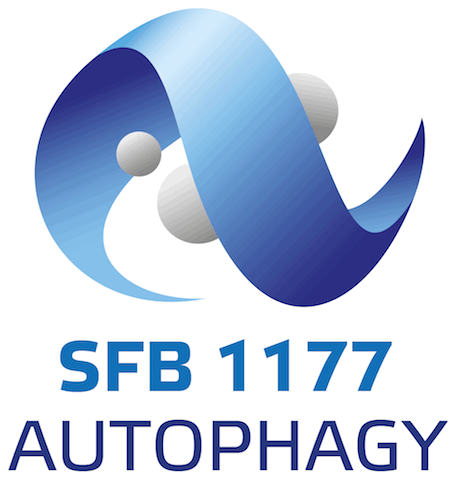E08
Targeting selective autophagy in acute myeloid leukemia
Autophagic flux is significantly increased in primary acute myeloid leukemia (AML) samples compared to normal hematopoietic stem cells. Based on our previous data, we now aim to understand the molecular mechanisms governing mitophagy in AML, and we aim to identify kinases and develop highly selective kinase inhibitors regulating mitophagy. One of these projects focusses on the role of MST kinases in regulating autophagy in AML requiring the development of highly selective MST1/2 and MST3/4 inhibitors (so called chemical probes), which we will use to assess the potential of these kinases for the development of new treatment strategies in AML.

Example of a design strategy for the development of selective MST1/2 inhibitors. PF-06447475, developed by Pfizer as a LRRK2 inhibitor, is also a potent MST inhibitor with good kinome wide selectivity (upper right panel). This compound represents therefore a good lead structure which is currently optimized at two positions (R1 and R2; right lower panel). An early derivative of this compound series was crystallized with MST1 for further lead optimization (lower left panel).
Principal Investigators
Prof. Dr. CHRISTIAN BRANDTS
Medizinische Klinik II, Hämatologie und Onkologie
Universitätsklinikum Frankfurt
GU Frankfurt
Theodor-Stern-Kai 7
60590 Frankfurt a. M.
Germany
Office: +49 69 63 01-71 04
brandts@em.uni-frankfurt.de
Principal Investigators
Prof. dr. Stefan knapp
Institut für Pharmazeutische Chemie
GU Frankfurt
Max-von-Laue Str. 9
60438 Frankfurt a. M.
Germany
Office: +49 (0) 69 798 29871
Knapp@pharmchem.uni-frankfurt.de
